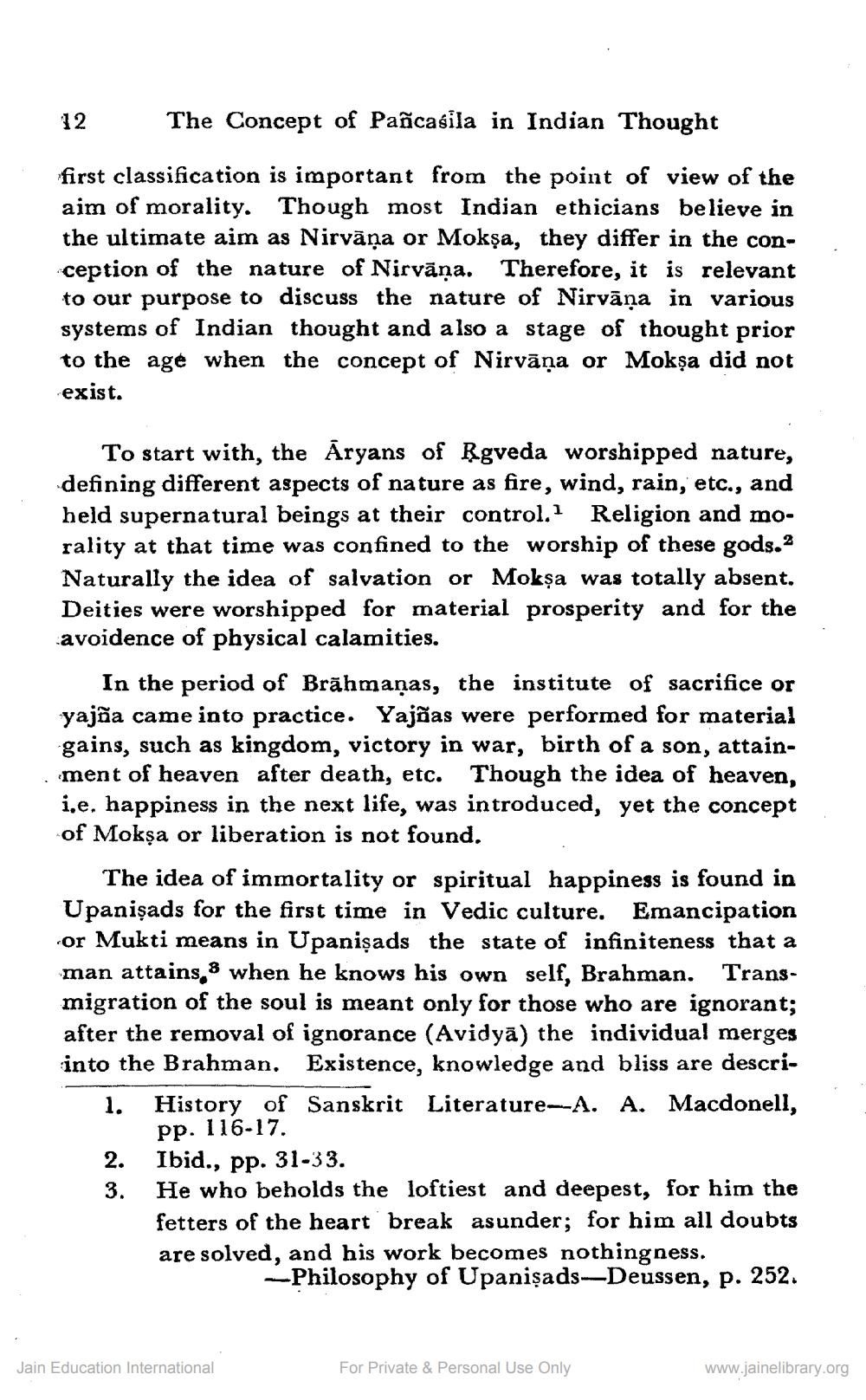________________
The Concept of Pancasila in Indian Thought
first classification is important from the point of view of the aim of morality. Though most Indian ethicians believe in the ultimate aim as Nirvana or Mokşa, they differ in the conception of the nature of Nirvāṇa. Therefore, it is relevant to our purpose to discuss the nature of Nirvana in various systems of Indian thought and also a stage of thought prior to the age when the concept of Nirvaṇa or Mokṣa did not exist.
12
To start with, the Aryans of Rgveda worshipped nature, defining different aspects of nature as fire, wind, rain, etc., and held supernatural beings at their control.1 Religion and morality at that time was confined to the worship of these gods.2 Naturally the idea of salvation or Mokṣa was totally absent. Deities were worshipped for material prosperity and for the avoidence of physical calamities.
In the period of Brāhmaṇas, the institute of sacrifice or yajña came into practice. Yajñas were performed for material gains, such as kingdom, victory in war, birth of a son, attainment of heaven after death, etc. Though the idea of heaven, i.e. happiness in the next life, was introduced, yet the concept of Moksa or liberation is not found.
The idea of immortality or spiritual happiness is found in Upanisads for the first time in Vedic culture. Emancipation or Mukti means in Upanisads the state of infiniteness that a man attains, when he knows his own self, Brahman. Transmigration of the soul is meant only for those who are ignorant; after the removal of ignorance (Avidya) the individual merges into the Brahman. Existence, knowledge and bliss are descri
1. History of Sanskrit Literature-A. A. Macdonell, Pp. 116-17.
2. Ibid., pp. 31-33.
3.
He who beholds the loftiest and deepest, for him the fetters of the heart break asunder; for him all doubts are solved, and his work becomes nothingness. -Philosophy of Upaniṣads-Deussen, p. 252.
Jain Education International
For Private & Personal Use Only
www.jainelibrary.org




